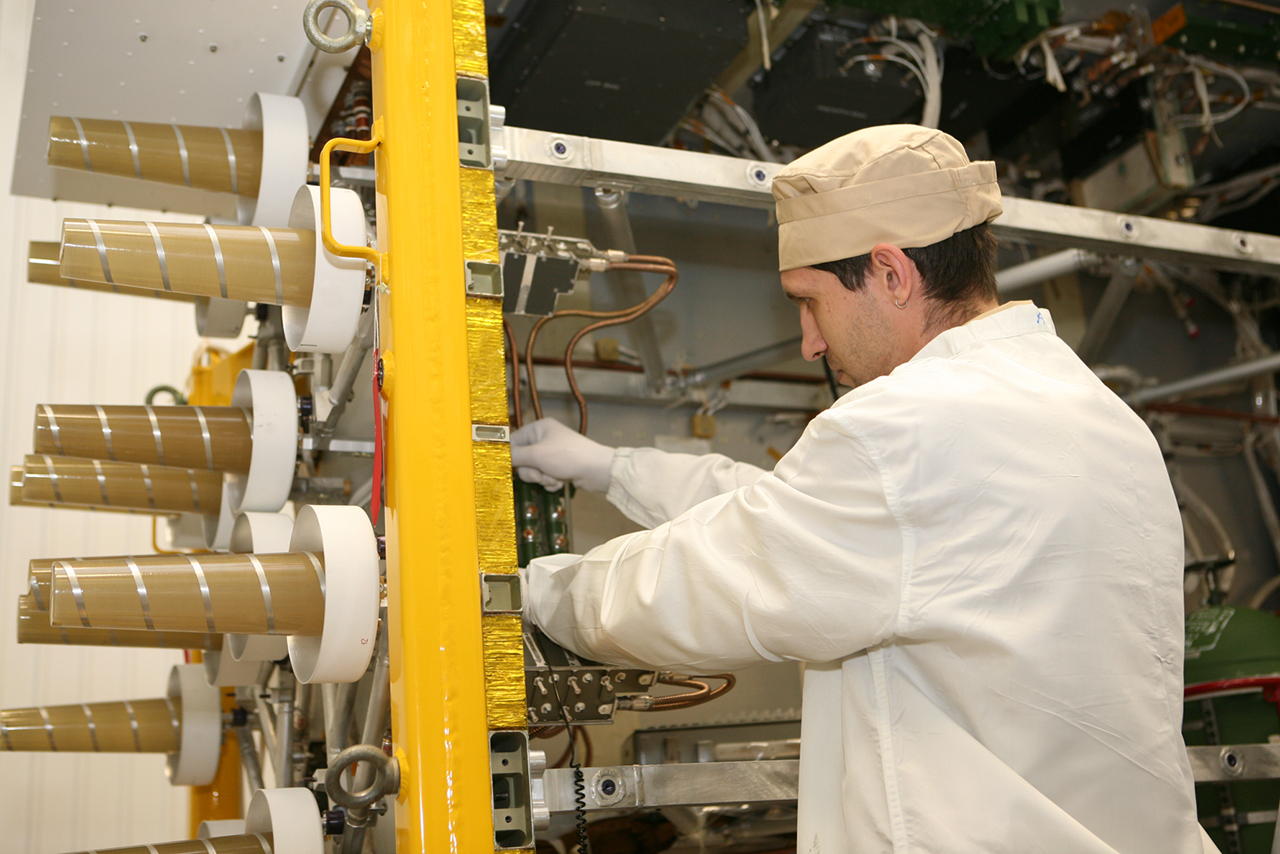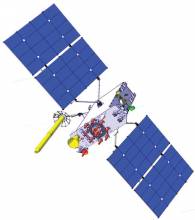For the first time, a GLONASS-K next-generation satellite has begun providing on-orbit services for Russia’s GNSS system.
For the first time, a GLONASS-K next-generation satellite has begun providing on-orbit services for Russia’s GNSS system.
Launched December 1, 2014, the spacecraft began regular broadcasts on February 15, transmitting on channel –6 from its orbital location in plane 2, slot 9 of the GLONASS constellation.
The decision to put the GLONASS-K spacecraft, designed and built by the ISS-Reshetnev Company, into service was made following the results of its in-flight tests, which had lasted for more than a year.
This GLONASS-K satellite was built around an unpressurized platform, has a mass of 974 kilograms, an electric power supply system’s capacity of 1600 watts, and a design for a 10-year lifespan. It transmits five navigation signals in the GLONASS L1, L2, and L3 bands. The satellite also carries a COSPAS-SARSAT payload supporting the international satellite-based search and rescue system.
Over the longer term, GLONASS-K satellites are expected to considerably improve the characteristics and capabilities of the GLONASS system, including the transmission of CDMA civil signals. The new-generation satellites will gradually replace the GLONASS-M series that currently form the backbone of the system’s orbital constellation.
All satellites which are part of the GLONASS system were developed and constructed at Information Satellite Systems – Reshetnev Company. The company has signed a contract with the Russian space corporation Roscosmos to build nine more GLONASS-K1 satellites and two GLONASS-K2.
According to a March 1 article by the Russian state news agency RIA Novosti, Reshetnev’s CEO Nikolai Testoyedov said that the new satellites would begin launching in 2018. Testoyedeov said that export restrictions on advanced aerospace components had forced Reshetnev to find other sources, including available European and Chinese components as well as those being developed under an accelerated Russian import substitution program.
Currently, one other GLONASS-K satellite, launched into orbit on February 26, 2011, has already undergone in-flight tests and is ready to provide services, according to Reshetnev.






